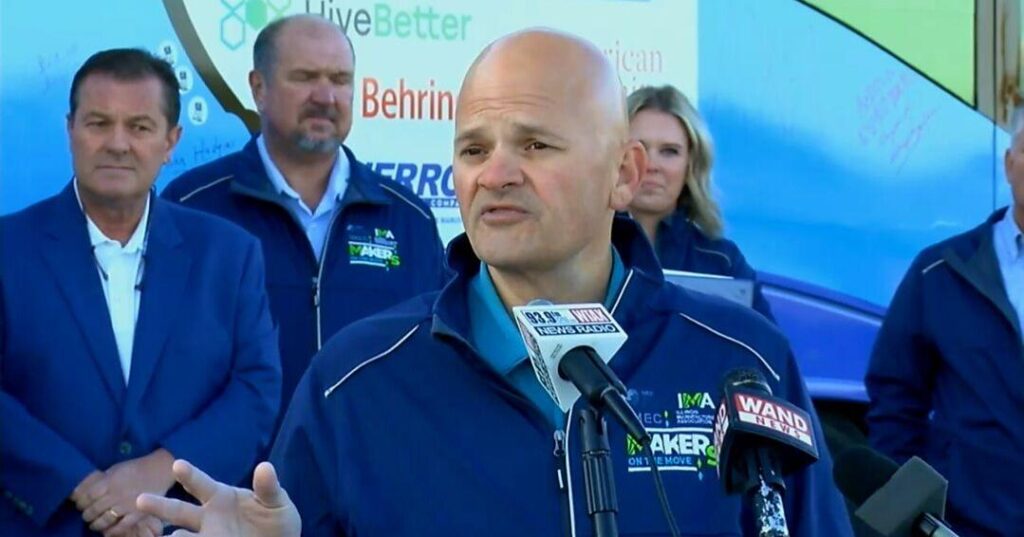
(The Center Square) – An industry advocate says Illinois manufacturers could benefit from a new U.S. trade agreement with the European Union, even though the deal includes tariffs.
President Donald Trump and European Commission President Ursula von der Leyen announced this week that the EU would pay the U.S. a tariff rate of 15%, eliminate tariffs on U.S. industrial goods and purchase $750 billion worth of U.S. energy. The agreement also calls for Europe to make new investments of $600 billion in the United States by 2028.
Illinois Manufacturers’ Association President and CEO Mark Denzler said it’s important to create stability and certainty.
“Certainly American manufacturers can compete with anyone globally if the playing field is level and fair. This advances that in that direction,” Denzler told The Center Square.
Illinois companies exported more than $80 billion worth of goods and services last year, including about $12.6 billion to countries in the European Union.
Denzler said the impact of tariffs vary by sector but ultimately result in higher prices.
“Companies will have to make the decision. Is that a cost they can absorb? Is it something that gets passed on to the consumer? Every company is going to have to make that decision for themselves,” Denzler said.
Although the 15% tariff rate applies to most European good, a statement from the White House said the sectoral tariffs on steel, aluminum and copper will remain unchanged, with the EU continuing to pay 50%.
Denzler said tariffs can be a hindrance, but they can also be helpful.
“Tariffs used appropriately can make sense, particularly against a country that might be dumping products into the market, such as China, or stealing intellectual property. Tariffs can be an appropriate measure when countries are not playing by the rules, but manufacturers are glad to see an agreement announced by the White House,” Denzler said.
The European Commission president said the deal will bring stability and predictability, which is important to businesses on both sides of the Atlantic Ocean.
When a reporter asked von der Leyen what concessions the U.S. made, the German official did not respond with specifics.
“The starting point was an imbalance, a surplus on our side and a deficit on the U.S. side. We wanted to rebalance the trade relation, and we wanted to do it in a way that trade goes on between the two of us,” von der Leyen answered.
Denzler said Illinois is a major trading state, one of five in the U.S. with a $1 trillion economy.





